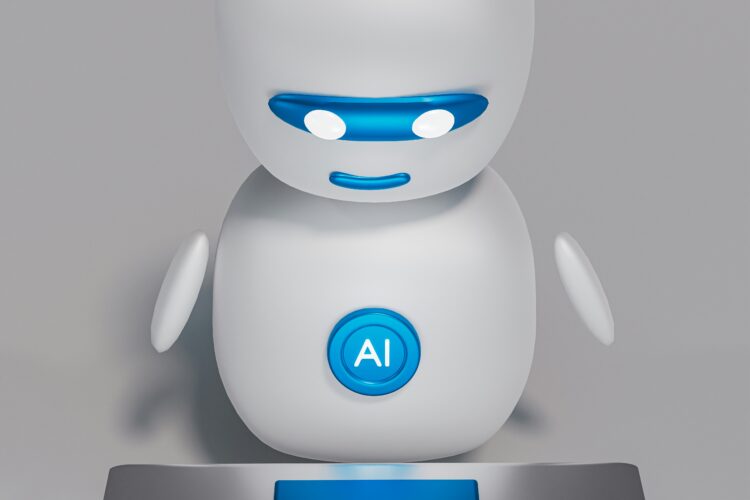
Digital marketing today faces the dual challenges of meeting increasing customer expectations and managing rising operational costs. With businesses seeking to automate routine tasks, chatbots have emerged as an innovative solution to provide fast, efficient, and personalized responses. This article examines how chatbots transform automated responses in digital marketing, addressing their evolution, benefits, deployment strategies, applications across campaigns, metrics for assessment, and future outlook. Chatbots are reshaping customer support, lead generation, and overall engagement in digital marketing by converting simple scripts into sophisticated conversation engines.
Key Takeaways
- Chatbots have evolved from basic scripted responses to sophisticated conversational AI that drives personalized customer interactions.
- They offer continuous support, cost reduction, improved lead capture, and enhanced engagement within digital marketing campaigns.
- Effective chatbot deployment relies on carefully choosing solutions, crafting engaging dialogue, and integrating these tools into existing digital ecosystems.
- Future developments, ethical guidelines, and anticipatory chatbots will further shape the landscape of automated digital marketing responses.
The Shift Towards Intelligent Automated Responses in Digital Marketing

The transformation from rudimentary scripts to advanced conversational AI marks a significant shift in digital marketing. Initially, simple automated responses were limited to basic greetings and FAQs. Chatbots use natural language processing and machine learning to deliver intelligent, context-aware communications.
From Basic Scripts to Conversational AI in Digital Marketing
Chatbots have advanced significantly from their early days when static scripts entirely predetermined responses. Modern systems analyze user inputs and dynamically generate relevant replies, improving the overall consumer experience. This shift is powered by advancements in artificial intelligence that enable these tools to understand context and adjust tone.
How Chatbots Expedite Automated Responses for Customer Queries
Automated chatbots ensure customers receive immediate answers, reducing wait times that can lead to frustration and lost sales. By automating routine queries, businesses can efficiently allocate resources to more complex issues. This capability not only shortens response times but also improves customer satisfaction through seamless interactions.
Achieving Personalized Automated Responses With Chatbot Technology
Personalization is at the heart of current digital marketing strategies. Chatbots, with their ability to integrate user data, enable tailored conversations based on previous interactions and preferences. This personalization drives engagement, builds loyalty, and ultimately enhances customer retention.
The Contribution of AI to Advanced Automated Responses in Digital Marketing
Artificial intelligence contributes to more than just speed; it also enhances the depth of automated responses. AI-driven systems analyze customer sentiment and use predictive analytics to anticipate needs, ensuring responses that feel organic and empathetic. As a result, chatbots deliver a customer experience that resonates well beyond generic automated replies.
Core Benefits of Using Chatbots for Automated Responses in Digital Marketing

Chatbots offer numerous benefits that extend across different facets of digital marketing, from cost savings to enhanced customer engagement.
Providing Continuous Customer Support Through Automated Chatbot Responses
Chatbots are available 24/7, ensuring that customers can receive assistance at any hour. This continuous support eliminates the frustrations of delayed responses, helping businesses capture leads and resolve issues efficiently—even during non-business hours.
Streamlining Digital Marketing Budgets With Automated Response Systems
By automating routine tasks, chatbots reduce the need for large customer support teams. This reduction in labor costs directly translates into more efficient marketing budgets. Companies can focus their resources on strategic initiatives rather than on handling repetitive queries.
Enhancing Lead Capture Processes With Automated Chatbot Responses
Chatbots are effective lead generation tools. They proactively engage visitors on websites and social media platforms, guiding them towards sign-up forms or special offers. This immediate engagement not only captures leads faster but also qualifies them by gauging user interest in real time.
Driving Higher Engagement With Prompt Automated Responses From Chatbots
High engagement levels are achieved when customers receive prompt and accurate responses. Chatbots help maintain a high level of interactive communication, encouraging users to explore more products or services while building a strong, measurable digital relationship.
Successfully Deploying Chatbots for Optimized Automated Responses in Digital Marketing

Deploying chatbots effectively requires strategic planning and careful alignment with business goals. Digital marketers must consider multiple factors to optimize chatbots for their specific campaigns and customer segments.
Choosing an Appropriate Chatbot Solution for Your Digital Marketing Goals
Selecting the right chatbot platform involves assessing features such as natural language understanding, integration capabilities, and data analytics. Businesses need to align their choice with their digital marketing objectives to ensure the tool supports key processes like lead capture or customer support.
Crafting Engaging Dialogue for Chatbot Automated Responses
The quality of interaction depends on how engaging the chatbot’s dialogue is. A well-crafted conversation reinforces brand personality and establishes trust, making customers feel valued. This requires writing responses that are both natural and reflective of the company’s tone.
Linking Chatbots With Your Current Digital Marketing Infrastructure
Integration is critical for maximizing chatbots’ benefits. Connecting these tools with existing CRM systems, email marketing platforms, and social media channels creates a seamless process that enhances data sharing and customer insights.
Refining Chatbot Performance for Better Automated Response Accuracy
Refinement of chatbot responses requires ongoing optimization and analytics. Regular performance reviews help identify areas for improvement, ensuring that the system remains responsive to evolving customer expectations and the dynamic digital marketing landscape.
Widespread Uses of Chatbot Automated Responses in Digital Marketing Campaigns

Chatbots are deployed across many digital marketing channels, transforming how businesses interact with customers by offering real-time assistance across platforms.
Utilizing Chatbots for Automated Responses on Company Websites
On company websites, chatbots assist users with navigation, product information, and issue resolutions. They effectively reduce bounce rates and drive conversions by engaging visitors at critical moments through proactive support and interactive FAQs.
Deploying Chatbots for Automated Responses in Social Media Engagement
Social media platforms benefit greatly from chatbot deployments, engaging users through instant messaging and comment moderation. This integration with social media ensures that customer inquiries are responded to swiftly, enhancing overall brand interaction and boosting social engagement metrics.
Integrating Chatbots for Automated Email Marketing Responses
When integrated with email marketing campaigns, chatbots assist in segmenting audiences and delivering personalized content. Automated email responses powered by chatbot language models can provide follow-up information and deals based on user behavior, leading to increased conversion rates and customer retention.
Applying Chatbot Automated Responses to Improve Online Sales Interactions
In the realm of e-commerce, chatbots play a pivotal role in facilitating sales. They help customers find products, provide pricing details, and assist with checkout processes. By answering inquiries in real time, these chatbots improve the shopping experience and drive higher online sales.
Assessing Chatbot Effectiveness in Automated Digital Marketing Responses

Measuring the performance of chatbot systems is essential to ensure they contribute positively to digital marketing campaigns. Several key indicators help assess their efficiency and impact on customer engagement.
Essential Performance Indicators for Chatbot Automated Responses
Performance indicators such as response time, resolution rate, and user engagement metrics offer insights into chatbots’ effectiveness. Tracking these metrics helps organizations understand the value provided by the automated system and identify improvement opportunities.
Gauging User Contentment With Chatbot Driven Automated Responses
User satisfaction surveys and feedback tools help gauge how well chatbots perform according to customer expectations. Analyzing satisfaction scores provides valuable data that can be used to further refine automated interactions.
Determining the Value Gained From Chatbot Automated Response Platforms
Determining the tangible benefits of chatbot platforms involves comparing cost savings, increased sales, and improved customer support rates before and after deployment. This comparative analysis assists marketers in quantifying the return on investment.
Methods for Iteratively Improving Chatbot Automated Responses
Continuous improvement methods, including regular training on new data sets and user inputs, ensure that chatbots evolve over time. Implementing iterative feedback loops allows these systems to adapt to changes in customer behavior and market trends effectively.
The Future Trajectory of Chatbots in Automated Digital Marketing Responses

The evolution of chatbot technology is ongoing, with trends pointing towards even more intelligent and more anticipatory systems. Future developments will address current limitations, offering greater personalization and further automation across digital platforms.
Upcoming AI Developments Impacting Chatbot Automated Responses
Emerging AI technologies, such as deeper neural networks and improved natural language models, are set to drive the next phase of chatbot evolution. These innovations will enable more nuanced understanding and accurate human-like responses, thereby enhancing overall customer interactions.
The Emergence of Anticipatory Chatbots in Digital Marketing Automation
Anticipatory chatbots, which predict customer needs before a query is even made, are poised to revolutionize digital marketing automation. These tools can proactively offer solutions and product recommendations by analyzing past behaviors and leveraging predictive analytics.
Moral Guidelines for Using Chatbot Automated Responses in Marketing
As chatbots become more advanced, ethical considerations are critical in their deployment. Companies must ensure that automated interactions respect user privacy, avoid manipulative practices, and maintain transparency in data usage, thus upholding consumer trust.
Adapting Your Digital Marketing for Evolving Automated Response Technologies
Continuous adaptation and learning are key to capitalizing on the latest advancements in chatbot technology. Digital marketers must remain informed about technological trends, invest in ongoing training, and integrate new features into their systems to maintain a competitive edge in customer engagement.
Frequently Asked Questions
Q: How do chatbots enhance personalized customer support?
A: Chatbots use integrated user data and AI to deliver responses tailored to customer preferences, resulting in efficient and empathetic support. Their ability to personalize interactions improves engagement and customer satisfaction.
Q: What cost benefits do chatbots offer digital marketing teams?
A: By automating routine queries and tasks, chatbots reduce the need for extensive customer support teams, leading to notable cost savings and a more streamlined marketing budget allocation.
Q: How can businesses measure the effectiveness of chatbot applications?
A: Effectiveness is measured through key performance indicators like response time, resolution rate, and user satisfaction, which provide insights into both customer experience and return on investment.
Q: What future developments can be expected in chatbot technology?
A: Future innovations include deeper machine learning models, anticipatory capabilities, and increased integration with existing digital marketing platforms, leading to even more intuitive and responsive customer interactions.
Q: Are there ethical concerns associated with the automation of digital marketing responses?
A: Yes, it is crucial for businesses to ensure transparency, safeguard user data, and avoid manipulative practices while deploying chatbots, thereby maintaining consumer trust and upholding ethical standards.
Final Thoughts
Chatbots have ushered in an era of efficient, personalized, and continuous automated responses within digital marketing. Their evolution from basic scripts to sophisticated AI tools is reshaping customer support, lead generation, and engagement. Businesses that embrace these technologies in alignment with ethical practices and ongoing optimization are poised to gain a significant competitive advantage. As digital marketing continues to evolve, expect chatbots to become indispensable in delivering seamless customer experiences and driving business growth.

Comments